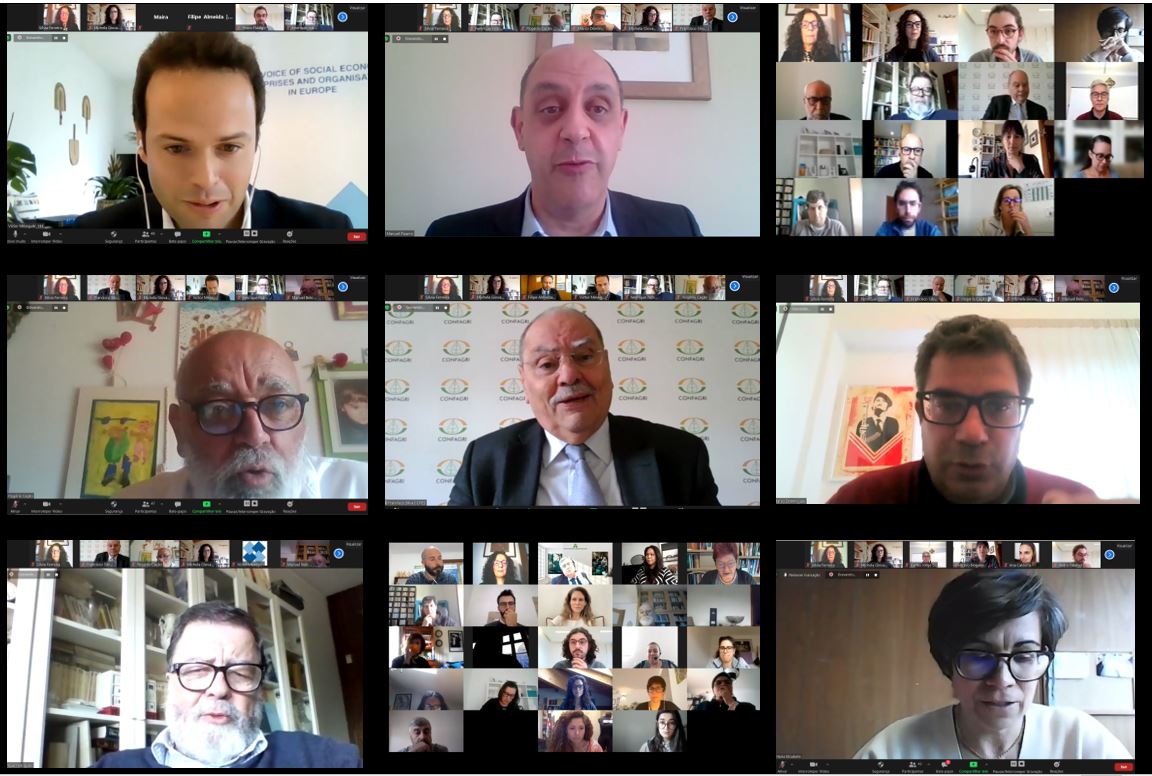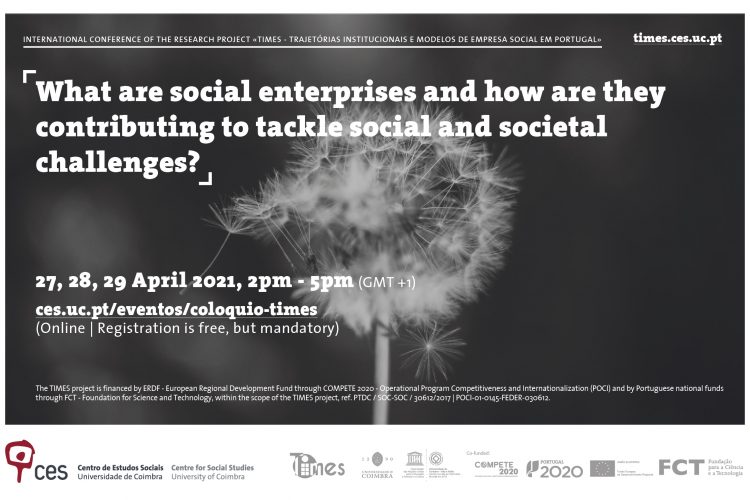Introduction
Social enterprises (SE) are a phenomenon that is deserving growing attention at the academic, political and civil society levels all over Europe. SEs are bringing innovations in the organizational forms of the social economy and its sectors of activity, articulating economic, social, cultural, and environmental dimensions, and orienting their missions towards social and societal problems of poverty, unemployment, aging, environmental sustainability.
The debate around the concept of SE is indicative of the transformations and complex articulations in the field of social economy and the relationships between these organizations, the State, private companies, and the market. In spite of this international, scientific, and political relevance, the existing knowledge about SEs in Portugal is still limited.
With the TIMES project we aimed at contributing to the knowledge of the meaning, profile, institutional context, and roles of SE in Portugal, focusing on their contribution in addressing social and societal challenges and drawing a future political agenda for SEs. The conceptual and methodological choices of the TIMES Project were in line with the International Comparative Social Enterprise Models (ICSEM) project, thus adding in comparative power.
This conference has two objectives. On one hand, to present the main results of the TIMES Project regarding social enterprises in Portugal. On the other hand, to debate the main challenges for SEs at the organizational, social and political levels and help forward an agenda for their role in society. This is done by situating the Portuguese case within experiences of other European countries and in relation European institutions policies and initiatives.
In this conference we will deal with: SE models in Portugal and Europe (day 1); social enterprises contribution in addressing social and societal challenges (work integration, social inclusion, culture, arts and environmental sustainability) (day 2); drawing a future political agenda for SE capacity and roles (day 3).
Invited speakers will be national and European scholars, representatives of European Institutions, representatives of SEs that participated in the study, local and European policy makers, as well as other social economy stakeholders.
The TIMES project is financed by ERDF – European Regional Development Fund through COMPETE 2020 – Operational Program Competitiveness and Internationalization (POCI) and by Portuguese national funds through FCT – Foundation for Science and Technology, within the scope of the TIMES project, ref. PTDC / SOC-SOC / 30612/2017 | POCI-01-0145-FEDER-030612.
Programme
Day 1
27 April, 14h – 16h30
14h – 14h15
Welcome and introduction, Silvia Ferreira (Professor FEUC; Principal Investigator CES/TIMES)
14h15 – 14h35
Social Enterprises in Europe, Dana Verbal (DG Employment, Social Affairs and Inclusion, European Commission)
14h35 – 14h45
Social Economy in the Portuguese Presidency of the Council of the European Union, Filipa Farelo (Coordinator of Institutional Relations, Cooperative Sector and Statistics at CASES)
14h45 – 15h10
Short self-presentation of organizations that participated in the study
- ColorADD, Miguel Neiva (Founder and President)
- CASCI – Centro de Ação Social do Concelho de Ílhavo, Helena Nunes (Head of rehabilitation area)
- Cooperativa Integral Minga, Jorge Gonçalves (President)
- Deliciosas Diferenças CRL, Carla Andrade (President)
- Chapitô, Teresa Ricou (President)
15h10 – 15h20
Questions and comments from the audience
Moderation: Hugo Pinto (researcher CES/TIMES)
15h20 – 15h30
Break
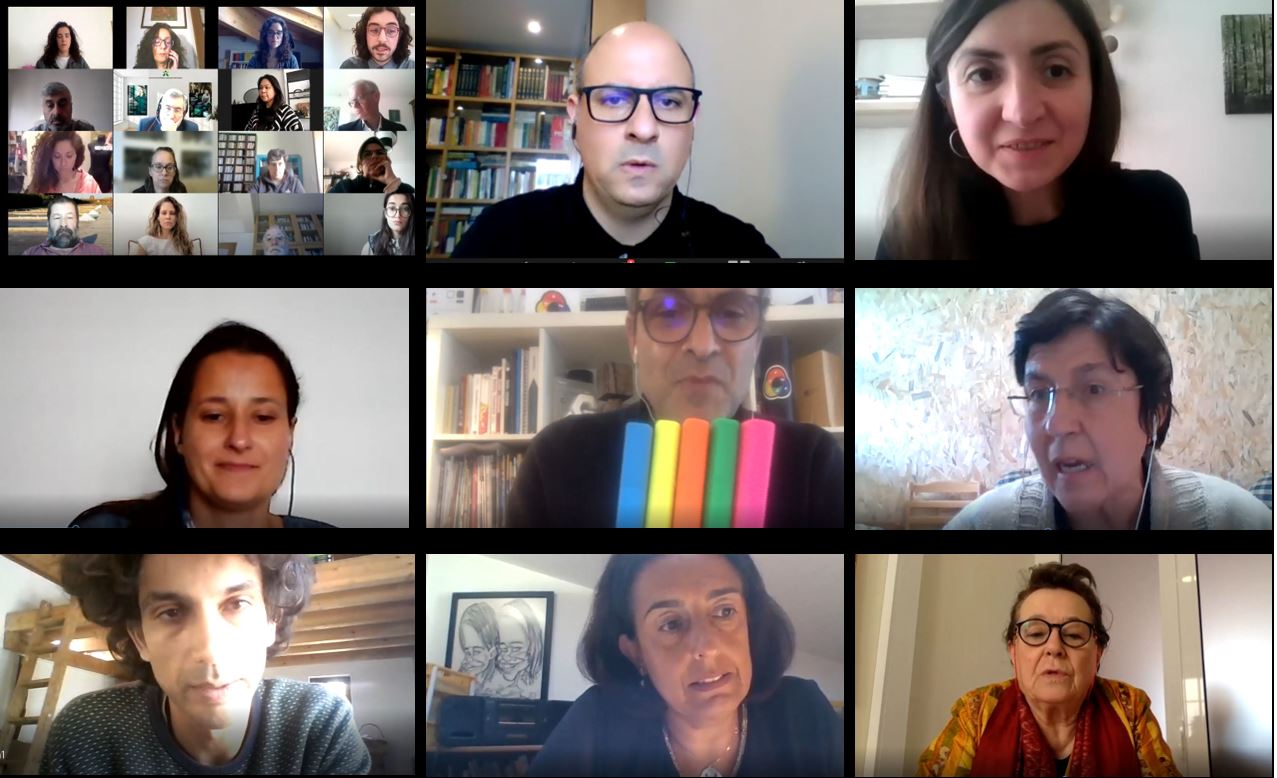
15h30 – 15h45
Portuguese social enterprise models: main results of TIMES Project, Silvia Ferreira (FEUC; CES/TIMES)
15h45 – 16h15
Portugal within the international landscape of social enterprise models, Marthe Nyssens (Catholic University of Louvain; ICSEM; EMES)
16h15 – 16h30
Questions and comments from the audience
Moderation: Patrícia Moura e Sá (Professor FEUC; Researcher TIMES)

Day 2
28 April, 14h – 17h
14h – 14h10
Welcome and introduction: social enterprises contribution in addressing social and societal challenges, Pedro Fidalgo (Researcher CES/TIMES)
Part 1 – SEs addressing social and societal challenges: work integration and social inclusion
14h10 – 14h30
SEs for work integration and social services in Denmark and Europe, Lars Hulgård (Professor Roskilde University, Denmark)
14h30 – 14h40
Short self-presentation of organizations that participated in the study
- CERCIMA – Cooperativa de Educação e Reabilitação do Cidadão Inadaptado do Montijo e Alcochete, C.R.L, Cristina Dias (President)
- Kairós – Cooperativa de Incubação de Iniciativas de Economia Solidária CRL, Pedro Gouveia (Director of community projects)
14h40 – 14h55
Respondent: António Valadas da Silva (President of the Portuguese Institute for Employment and Professional Training (IEFP))
14h55 – 15h10
Questions and comments from the audience
Moderation: Virgínia Ferreira (Professor FEUC; Researcher CES/TIMES)
15h10 – 15h20
Break
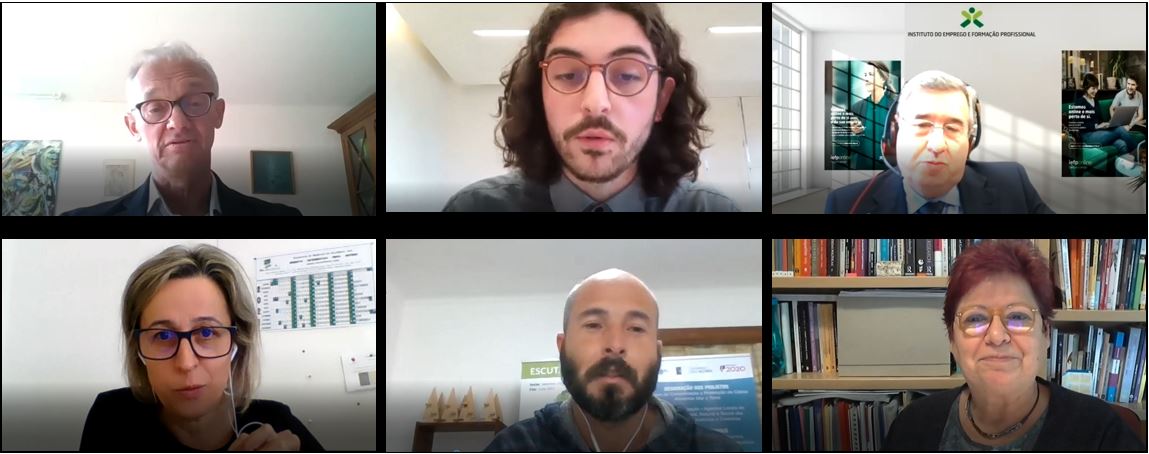
Part 2 – SEs addressing social and societal challenges: culture, art and environment
15h20 – 15h40
SEs for culture, art and environment, Rocío Nogales (Manging Director – EMES Network)
15h40 – 15h55
Short self-presentation of organizations that participated in the study
- O Teatrão, Isabel Craveiro (President)
- Pro Nobis Cooperativa, Michelle Chan (President)
15h55 – 16h10
Respondent: Américo Rodrigues (Director Direção Geral das Artes)
16h10 – 16h25
Short self-presentation of organizations that participated in the study
- Coopérnico – Cooperativa de Desenvolvimento Sustentável, CRL, Miguel Almeida (Member of Board of Directors)
- Vintage for a Cause, Helena Antónia Silva (Founder and Coordinator)
- Cooperativa de Usuários do Freixo do Meio, Alfredo Sendim (President)
16h25 – 16h40
Respondent: Nuno Lacasta (President of the Portuguese Agency for Environment)
16h40 – 17h
Questions and comments from the audience
Moderation: Teresa Maneca (Researcher CES/TIMES)
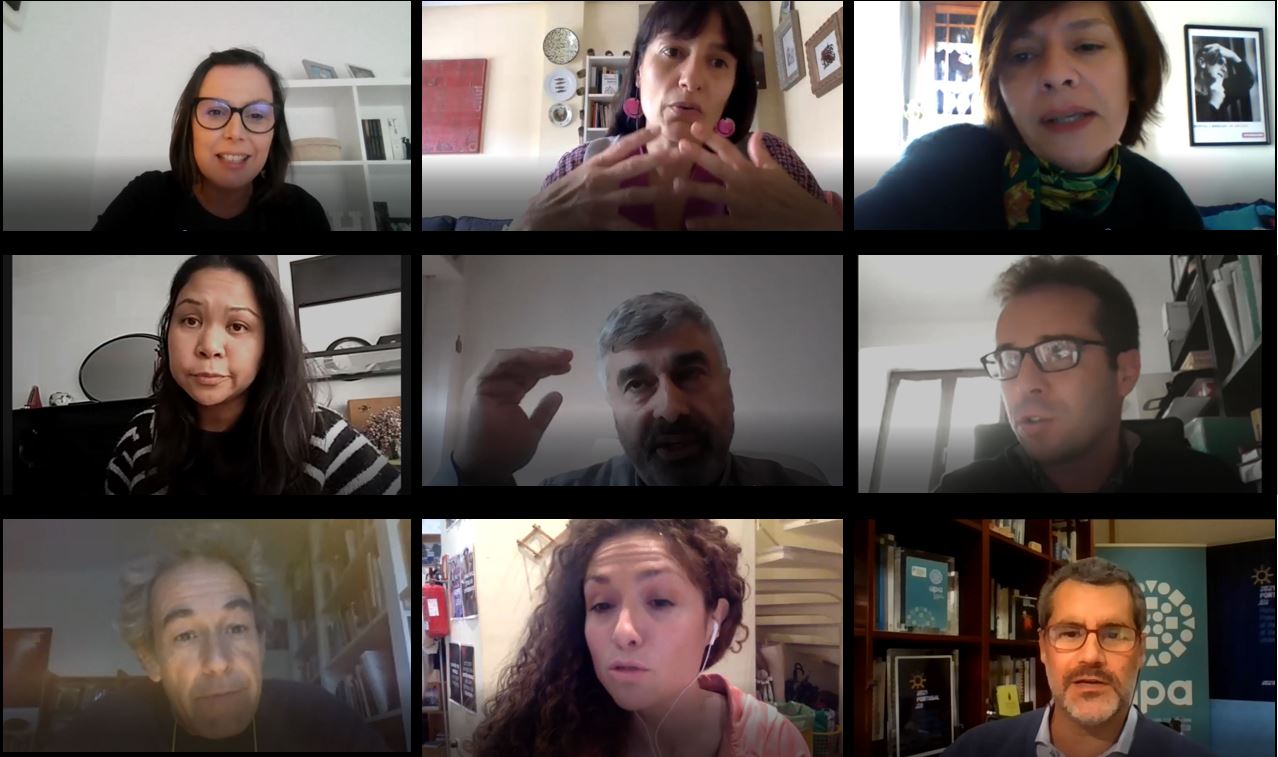
Day 3
29 April, 14h – 17h
14h – 14h10
Welcome and introduction: drawing a future political agenda for SE capacity and roles, Michela Giovannini (CES/TIMES)
Part 1 – National strategies for social enterprises and the social economy
14h10 – 14h30
Spanish Initiative on Social and Solidarity Economy, Maravillas Espín (General Director of Social Economy Department at the Spanish Ministry of Labour and Social Economy)
The Portuguese case:
14h30 – 14h40
The Framework Law for Social Economy, Eduardo Graça (CASES)
14h40 – 14h50
Evaluation of the initiative “Portugal – Inovação Social”, Filipe Almeida (President)
14h50 – 15h
Short self-presentation of organizations that participated in the study
- Beneficência Familiar – Associação de Socorros Mútuos, Carlos Jorge Silva (President)
- Microninho/Associação de Desenvolvimento Social e Cultural dos Cinco Lugares, Liliana Simões (President)
15h – 15h10
Questions and comments from the audience
Moderation: Elisabete Ramos (Professor FEUC; Researcher TIMES)
15h10 – 15h20
Break
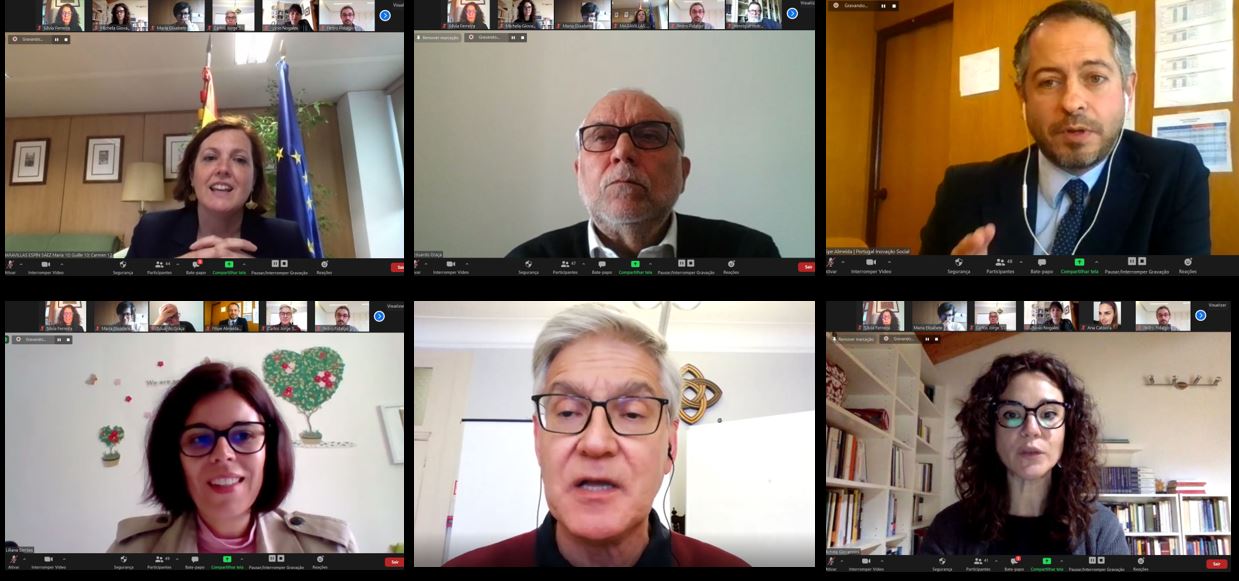
Part 2 – European strategies for social enterprises and the social economy
15h20 – 15h40
The European Action Plan for the Social Economy, Victor Meseguer (President of Social Economy Europe)
15h40 – 16h20
Respondents to part 1 & 2, representatives of federative bodies:
- Francisco Silva (Director CPES – Confederação Portuguesa da Economia Social)
- Rogério Cação (President CONFECOOP Confederação Cooperativa Portuguesa, and Vice-president FENACERCI Federação Nacional de Cooperativas de Solidariedade Social)
- Henrique Rodrigues (Assistant Director CNIS Confederação Nacional das Instituições de Solidaridade)
- Marco Domingues (President ANIMAR (Portuguese Association for Local Development)
- Carlota Quintão (Representantive RESIT Rede de Empresas Sociais para a Inserção pelo Trabalho – Network for WISE)
16h20 – 16h40
Questions and comments from the audience
16h40
Closing remarks on SE enabling ecosystems, Hugo Pinto (CES/TIMES)
Moderation: Hugo Pinto
